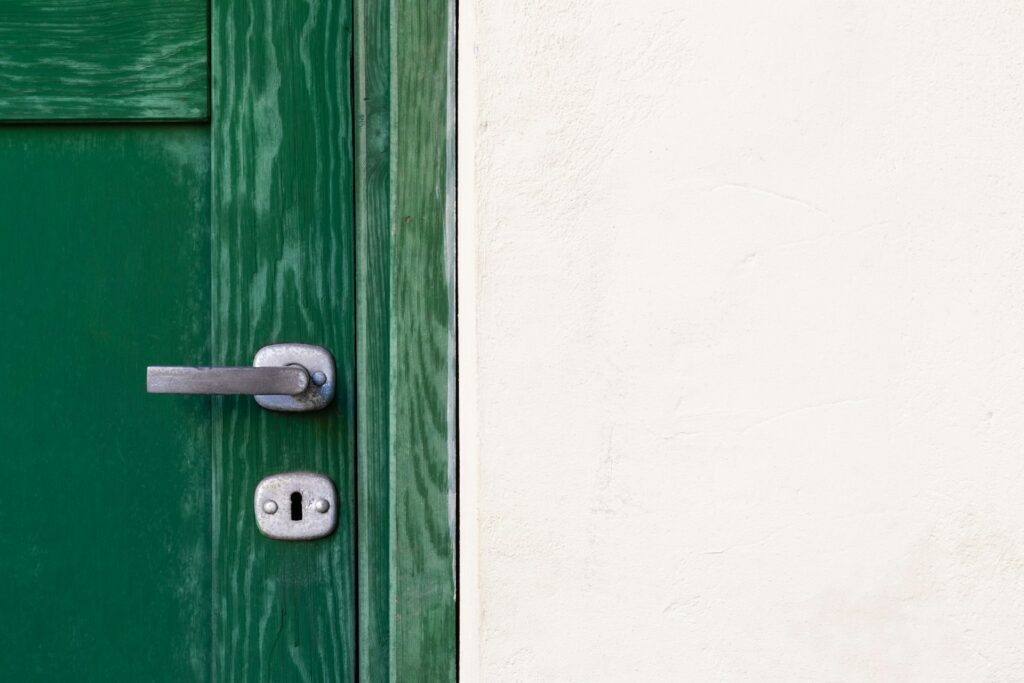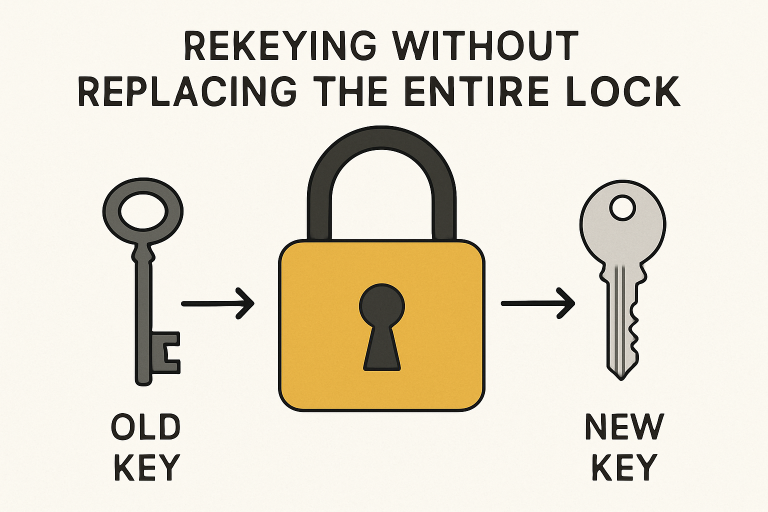
Securing your home or business is crucial, and one often overlooked method is rekeying your locks. Rather than replacing entire lock systems, rekeying involves adjusting internal lock mechanisms so that old keys are rendered useless, providing a convenient and cost-efficient way to enhance safety. Exploring key solutions Orlando can help you take proactive steps to safeguard your property.
The decision to rekey locks is crucial for security, especially after a move, loss of keys, or a break-in. Rekeying provides peace of mind by limiting access to trusted individuals and offers long-term benefits, such as consolidating locks to a single key. It is a practical solution for enhancing security and preparing homes for new tenants or owners. Homeowners should carefully consider the costs and benefits of rekeying versus replacing the entire lock to make the best choice for their security needs.
What Is Rekeying?
Rekeying is the process of altering a lock’s internal pins and tumblers so it no longer accepts the original key and instead works with a new one. Unlike lock replacement, this process keeps the basic hardware in place, changing only the essential parts that interact with the key. Rekeying is typically performed by a locksmith or with specialized rekeying kits for specific brands, although precision is crucial to ensuring the lock remains secure and functions smoothly.
This technique has been popular for decades, particularly among those seeking affordable protection. Rekeying provides a security reset whenever you’re unsure who might have a copy of your key, or if key management has become complicated in multi-tenant or multi-family properties. According to the Consumer Reports guide on home security, controlling who has access to your property is one of the critical steps toward better home safety.

When Should You Consider Rekeying?
Certain life events or circumstances make rekeying a wise choice. Here are some examples:
- After moving into a New Home, there is no way to know if previous residents, contractors, or maintenance personnel still have copies of your keys. Rekeying ensures you and your family are the only ones with access.
- Lost or Stolen Keys: Losing keys puts your property at risk. Prompt rekeying neutralizes any possibility that the lost keys could be used for unauthorized entry.
- Following a Break-In: If your property has been breached, rekeying can quickly restore confidence and tighten security, especially if the intruder had access to your keys.
- Employee Turnover: For businesses, rekeying after staff changes is crucial to prevent former employees from accessing sensitive areas or assets, exceptionally if keys were never returned.
Benefits of Rekeying
- Cost-Effective: Rekeying is significantly less expensive than replacing all your locks, making it a financially appealing option for both homeowners and property managers.
- Time-Efficient: A professional locksmith can typically rekey a lock in less than 20 minutes, minimizing disruption to your day.
- Enhanced Security: Rekeying ensures that any old keys are rendered useless, providing instant peace of mind.
- Key Management Simplification: If you want one key to open all the locks in your house, rekeying makes this possible, reducing confusion and the number of keys you need to keep track of.
This combination of affordability, convenience, and quick results makes rekeying especially appealing when key control is lost or during routine security updates. For businesses, regularly rekeying after staff changes is even a recommended best practice by security experts.
DIY Rekeying vs. Professional Services
Some hardware stores offer DIY rekeying kits, but while these can be suitable for certain standard locks and minor projects, DIY attempts carry the risk of damaging your locks or leaving them less secure. Rekeying requires accuracy; incorrectly assembled locks can jam, break, or function improperly. Locksmiths have the expertise, tools, and experience to address complex locks, troubleshoot issues, and guarantee your property’s security is uncompromised. They can also consult on ways to upgrade existing lock hardware and provide advice on additional security measures.
Cost Considerations
The price of rekeying will depend on both the type and number of locks, as well as whether you opt for professional assistance. Generally, the cost ranges from $50 to $100 per lock for locksmith services. In contrast, a total lock replacement includes not only labor but also new lock hardware, which can more than double the expense. For those seeking to maximize security on a budget, rekeying offers excellent value, especially for multiple entry points or frequent key changes, which are common in rental properties or businesses. Always request a detailed quote from your locksmith before proceeding to ensure transparency and avoid unexpected charges.
Conclusion
Rekeying your locks is one of the most practical and effective strategies to protect your home, business, or rental property in the face of changing circumstances. If you’ve recently moved, lost a key, or need to re-establish key control after an employee leaves, rekeying offers peace of mind without the expense or hassle of replacing all your locks. With proper guidance from a professional locksmith, you can implement tailored solutions that match your individual security needs while staying within budget. Don’t leave your property’s safety to chance—take proactive steps to rekey when the situation calls for it.





